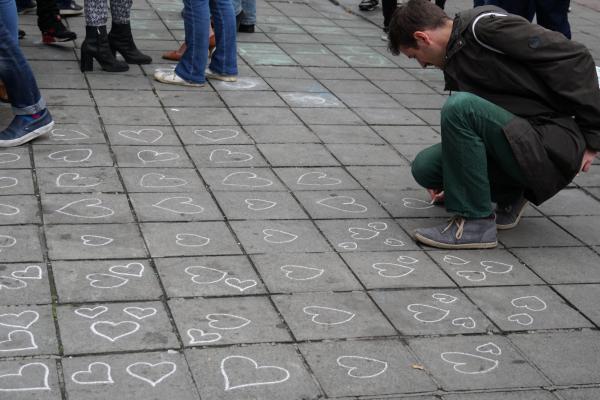Jun 15, 2016
The LGBTQ community continues to fight to be recognizably human, and attacks like the one here in Orlando remind us why that fight is so important and still so necessary.
At the vigil downtown on June 13, an evangelical Hispanic preacher spoke. He said, “Not all evangelicals hate you. Some of us love you and we welcome you in our congregations!” And when he prayed, many prayed with him.
Read the Full Article

Already a subscriber? Login
